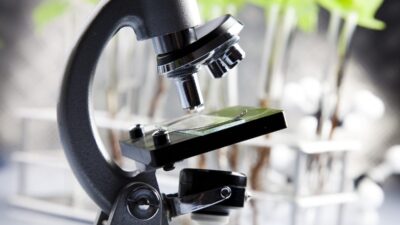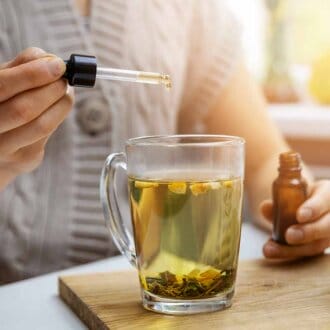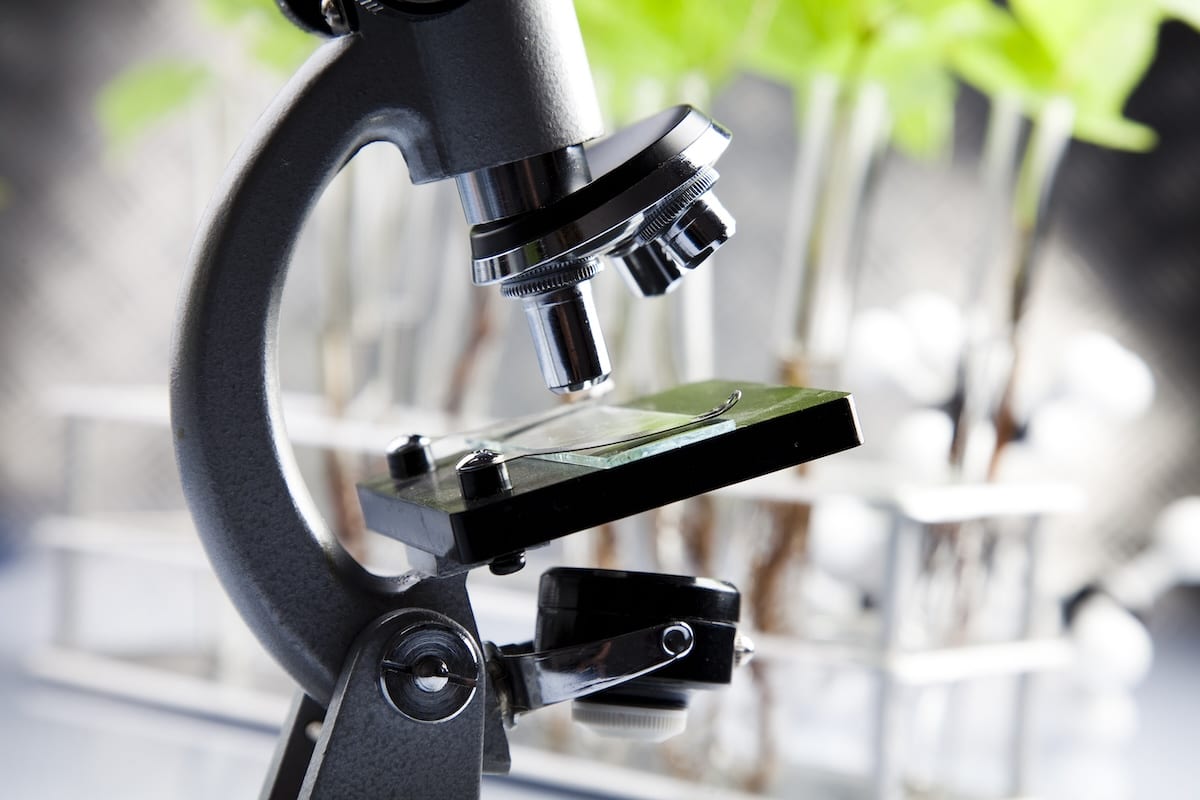The cannabis plant (Cannabis sativa) is extremely versatile, producing many types of CBD products. This includes two that are often confused: CBD Oil and CBD Tinctures. They are a bit different. And this means you have options. Today, Kats Botanicals explains the benefits and differences of CBD Oils vs CBD Tinctures. Then, it’s easier to select the best CBD products for you!
What is CBD Oil?
CBD (cannabidiol) and marijuana are two substances with the same source – the cannabis plant (Cannabis sativa).
“Wait, are we talking about drugs?” That’s what many of you might think when you hear CBD. But let’s take a break here.
CBD is actually a non-psychoactive molecule. The US mandates that all legal CBD products are only made with hemp. Hemp is cannabis, but it’s too low in THC to be classified as a drug. CBD oil is made by combining CBD extract and a carrier oil. CBD oil may contain other ingredients or supplements like CBD and melatonin, vitamins, or flavorings.
The CBD and oils are infused in calculated proportions, resulting in an oil suspension that’s evenly dispersed with the CBD. There are many benefits to this. For one, it’s easier to consume. And two, CBD suspended in a carrier oil is easier for the body.
Each CBD oil manufacturer has their “take” on which carrier oils in CBD oil are best. There are many carrier oils, like:
- MCT Oil (Medium-Chain Triglycerides) – MCT oil is rapidly absorbed, has a neutral taste, and improves CBD’s absorption.
- Hemp Seed Oil – Hemp seed oil contains beneficial fatty acids, vitamins, and antioxidants. While it doesn’t contain CBD itself, it complements CBD extract well.
- Olive Oil – Rich in antioxidants and heart-healthy.
- Avocado Oil – Nutrient-dense and high in oleic acid.
- Sunflower Oil – Rich in vitamin E and has a mild flavor.
Most CBD oil uses MCT oil because the body easily tolerates it and is less expensive to use. But any of these fat-based oils would work. Fat-based carrier oils help dissolve the fat-soluble cannabidiol and also enhance its bioavailability. This means your body can more easily absorb the CBD molecules that give us benefits.
Kats Botanicals produces CBD Isolate products made with the purest CBD – like what’s in our CBD Oil with Melatonin Tinctures!
What is CBD Tincture?
Although CBD tinctures are often confused with CBD oils, a CBD tincture is an alcohol-based CBD product. Alcohol is used as a solvent for the extraction of the CBD and other cannabinoids from the cannabis plant. CBD Tinctures may also often contain additives, such as sweeteners, artificial flavors, or vegetable glycerin, to mask its bitter taste. Like CBD oils, CBD tinctures may have added vitamins, herbal extracts, or supplements, like Ashwagandha or Melatonin. Tinctures are less common to find than CBD oils. Manufacturers sometimes use the two names interchangeably, adding to the confusion.
Curious to know more about how the two cannabidiol products differ? Well, let’s dive into it!
CBD Oil vs. CBD Tincture: Key Differences
As stated earlier, CBD oil and tinctures bear some marked differences between them. Let’s explore these.
Extraction and Production Process
The biggest difference we find when comparing CBD oils and tinctures is how CBD is extracted from the plant. Despite their same source, both follow a different extraction procedure, rendering the desired varying final product.
- CBD Oil: It is extracted from hemp plants (a variety of the cannabis plant) using the CO2 extraction procedure. This method is among the most efficient and clean extraction methods, ensuring that the final product is potent, pure, and free of harmful solvents. This extracted substance is then mixed in calculated proportions with the carrier oils, making a complete CBD oil.
- CBD Tincture: An alcohol-based extraction method is used in the case of cannabidiol tincture extraction. The process involves the soaking of the hemp plant in high-proof alcohol. This helps pull out the CBD and other beneficial compounds from the plant. It’s then slowly heated to remove excess alcohol and give a highly concentrated liquid.
Want to learn more about how CBD may help you? Here’s a good CBD introduction guide.
Base Ingredients and Formulation
A difference in the base ingredients forms the basis of the following key difference between the two cannabidiol products.
- CBD Oil: The formulation equation for these oils is CBD extract + carrier oil. The carrier oils can be of several types (as mentioned above), provided all are fat-based. The resulting oil formulation is free from alcohol, with a natural earthy taste.
- CBD Tincture: The formulation equation for these tinctures is CBD extract + alcohol + extra additives. It is no surprise that CBD tinctures use alcohol as a solvent, which explains their bitter taste. The use of alcohol also increases the tinctures’ shelf life.
Potency and Bioavailability
Another crucial factor as we speak of CBD oil vs. CBD tincture is their potency (strength) and bioavailability (amount of CBD absorbed by the body).
CBD Oil: These oils are consumed by different means, which affects their bioavailability.
- It is higher when the oil is consumed sublingually (under the tongue). When held for 30-60 secs, the oil gets directly absorbed into the bloodstream, rendering faster effects. The absorption rates reach up to 10-20%, increasing the oil’s bioavailability.
- Bioavailability is lower when the oil is consumed orally in gummies – like our Blue Raspberry CBD gummies or Strawberry CBD Gummies. In this case, the oil does not come in direct contact with the bloodstream, and some of the substance gets removed during digestion.
CBD Tincture: The tinctures also exhibit good bioavailability when consumed sublingually. The percentages may even increase up to 30%. It’s important to note that the absorption is slightly higher than that of oils due to their alcohol base. Alcohol, a good preservative and absorption enhancer, allows CBD to enter the bloodstream efficiently.
Potency: The variation in the potency battle between CBD tincture and oil depends on several factors. These include:
- CBD concentration
- Extraction method
- Carrier ingredients
- Bioavailability
How to Use CBD Oil vs. CBD Tincture
If you’re new to the use of cannabidiol, understanding how it can be used can help with your daily consumption, giving you the benefits you seek from it. If we compare CBD edibles vs. CBD oils and tinctures, the latter two are the most popular ways of consuming CBD.
How to Use CBD Oil
The following are some prominent ways of consuming cannabidiol oil.
Sublingual (under the tongue)
This method is the best way to maximize the oil’s absorption into the bloodstream and experience fast results (within 15-45 minutes). Here’s how you can take it!
- Shake the bottle properly before use.
- With the help of a dropper, place the desired dose under the tongue.
- Hold the dose in place for 30-60 seconds and then swallow.
Mixing in Food and Beverages
This is another way of taking CBD oil. However, this method results in slower absorption. Add small amounts to your smoothies, coffees, baked products, or salad dressings. As the product enters the digestive system, it takes about 1-2 hours before the effects appear.
Topical Use
Like many other oils, cannabinoid oils also possess soothing powers. You can apply and massage it directly on the skin for localized relief. The oil is best used for relief from lingering joint pains and muscle soreness often associated with exercise.
How to Use CBD Tincture
Here are a few ways of making the best use of CBD tinctures:
Sublingual (under the tongue)
Like CBD oils, the tinctures have a high bioavailability when consumed sublingually. The steps for consumption are also the same. However, their alcohol base gives them an edge over oils, enhancing their absorption percentages.
Mixing with Beverages
Just like oils, tinctures can be easily mixed with water and other beverages, such as juices, tea, and coffee. Their alcohol base allows for a good and even dissolution in the drinks, compared to the oils. This makes the tinctures a better choice for drink additives, which also helps reduce the intensity of the former’s bitter taste. Since it’s through digestion, here too, the effects begin to appear after 1-2 hours.
Pro Tip: Choosing a lower strength CBD oil for starters is always best. Begin with something like 10 mg/day, and then gradually increase the dose. This will help with a better adjustment of their bodies to these cannabis products.
CBD Tincture vs. Oil: Which One Is Better?
Making a choice between CBD oil vs. CBD tincture can be challenging. However, if you know your preferences, the process becomes a piece of cake. This also gives you a direct idea of what is better for you. For instance:
Choose CBD Oil:
- When you prefer a pure, oil-based extract, seek to avoid alcohol.
- When you want a versatile product with topical uses.
- When your taste preferences are more inclined towards natural and mild flavors.
- When you desire to experience long-lasting effects.
Choose CBD Tincture:
- When you are allergic to MCT oils.
- When you wish for a product with a high bioavailability and faster absorption rates.
- When you chase CBD products with a longer shelf life.
- When you are easy with the consumption of alcohol and bitter, earthy flavors.
CBD Edibles vs. CBD Oil or Tincture
Previously, we have discussed CBD oil and tincture in detail. Now, let’s have a quick look at other CBD edibles. These come in the following different types:
- CBD gummies (infused jelly-like candies)
- CBD chocolates and baked products (infused cookies, brownies, chocolate bars, etc)
- CBD drinks (CBD-infused teas, sodas, coffees, etc)
- CBD capsules and soft gels (capsules enclosing the oil or the tincture)
For each of the above cannabinoid edibles, the digestive tract is the major and perhaps the only intake route. This is why the effects take longer to appear (typically from 30 minutes to 1-2 hours). However, the effects are long-lasting, lingering for about 4-6 hours. These edibles make it fun and effective to consume cannabinoid products, especially for the newbies.
Pros and Cons of CBD Oil vs. CBD Tincture
Until now, we have thoroughly examined the comparison between CBD oil and tincture. Now, let’s have a quick look at the pros and cons of each of the two.
CBD Oil
The following table briefly examines the potential benefits and consequences of using these cannabinoid oils.
Pros
- Easy to use
- Has topical applications
- Easy to mix with beverages and food
- Has a less bitter taste
- Easily available
Cons
- Can be costly
- Slow absorption rates
- Short shelf life
- Easily degrades upon exposure to heat
CBD Tincture
The following table briefly examines the potential benefits and consequences of using cannabinoid tinctures.
Pros
- Easy to consume
- Has easy mixing with food and beverages
- Higher absorption rates
- Longer shelf life
Cons
- Bitter flavor
- Less readily available
- Little to no effective topical use
- Longer effect onset
- Moderately-lasting effects
The pros and cons of the two products also depend on the quality of the final finished product. A major question arises: “How do you purchase a quality CBD tincture and oil?” Well, worry not; we’ve got you covered! The following are some points you should consider when making your purchase of the above two cannabinoid products:
- Know your preferences: You must understand what you desire. Be sure about your desired dosage, preferred method of intake, and the CBD product you like.
- Check the brand’s reliability: Make sure that the brand you plan to purchase from has a good market position and is reliable and trusted for its products – like Kats Botanicals!
- Ensure third-party lab testing: Do check the possession of necessary certifications with the intended brand. It should feature a Certificate of Analysis (COA). Also, make sure the CBD products are third-party lab-tested.
- Check price vs. quality balance: Never go for highly high-priced or extremely cheap products. Ensure that the intended brand strikes a balance between affordable price and making quality CBD products accessible for all.
- Check customer reviews: Never forget to check the customer reviews. This will provide a clearer picture of the brand’s authenticity and reliability and whether it maintains value.
Final Thoughts
Now, people use CBD worldwide – and it’s no longer in the dark! From gummies to oils to tinctures, all types of cannabinoid products have some potential uses. The above article provided a detailed comparison between CBD oil vs. CBD tincture to help you make informed choices and find CBD that works for you. It’s also important to know your body preferences, and for new users, start with a low dosage.
So, are you ready to start your CBD journey? We’re here to help with a variety of plant-based botanical products and other botanical essentials that are affordable and well-made. Whether it’s CBD oil or tincture, explore your options carefully to find what works best for you!











